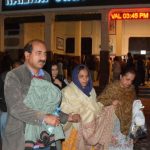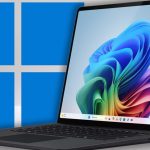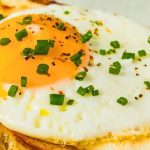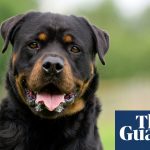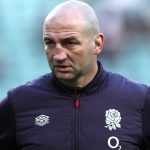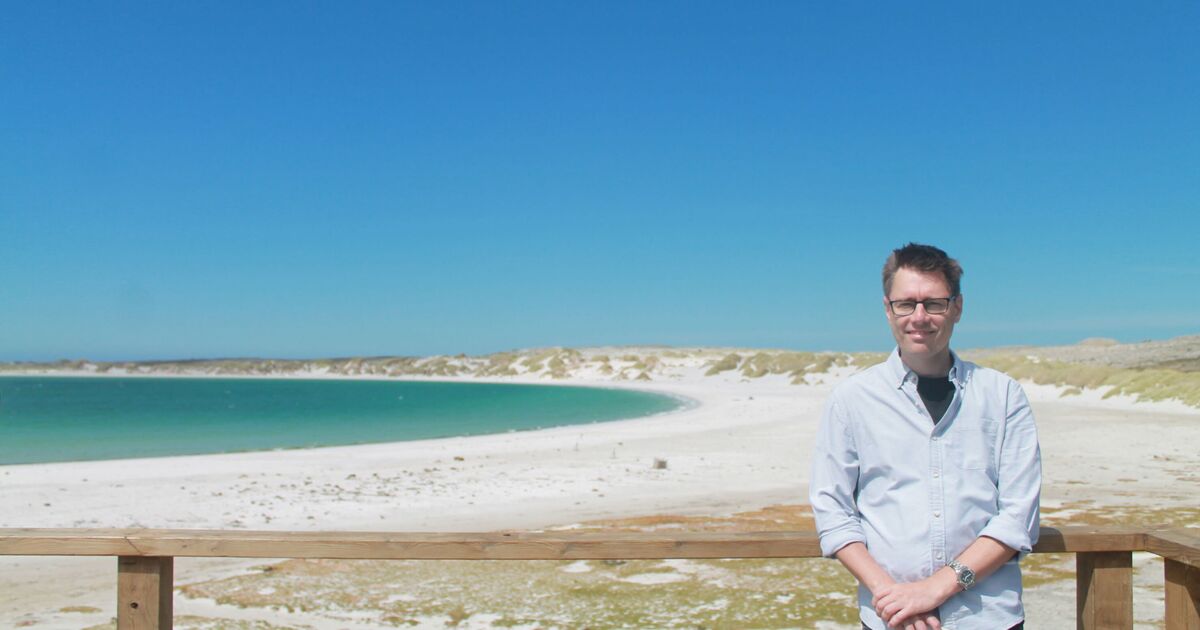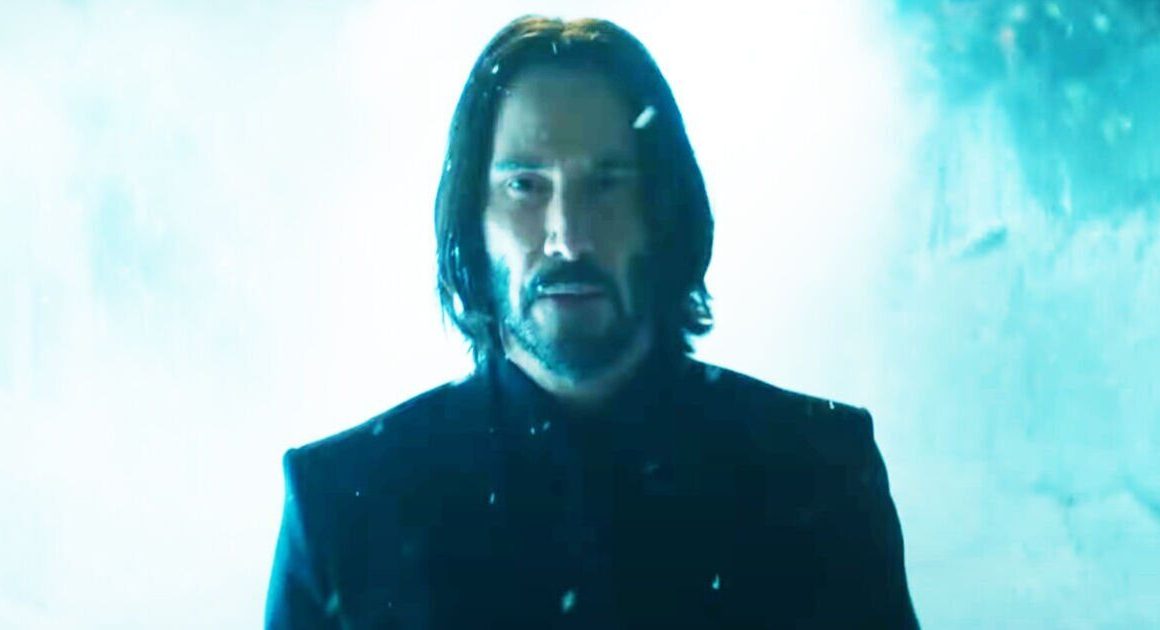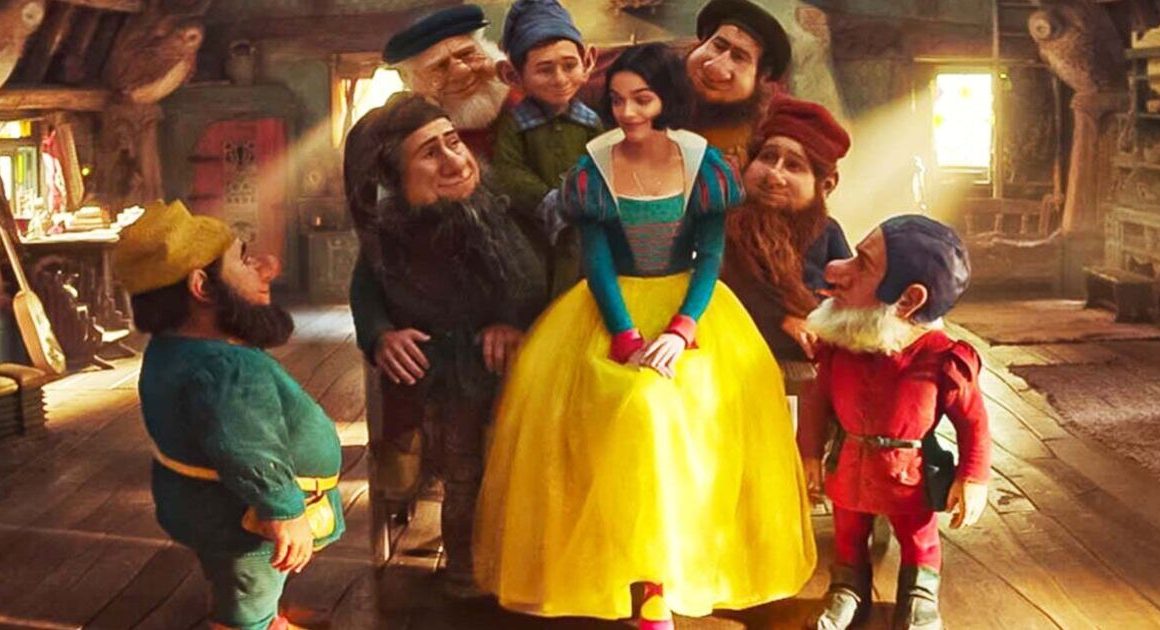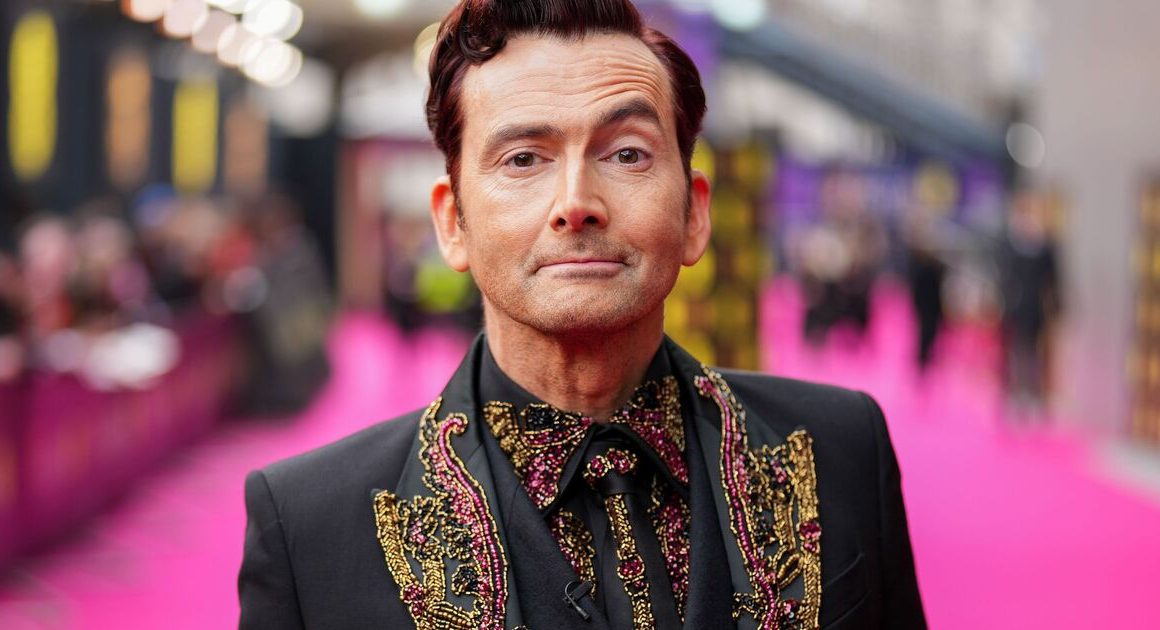
Author Rob Burnett grew up in the Falkland Islands and has since returned after a spell in London (Image: Rob Burnett)
Who would leave one of the greatest cities in the world to move to one of the most remote places on earth? In 2021 I was living in London and working as a Formula 1 journalist – my dream job.
Why, then, did I give it all up to move to a small, windswept, isolated island community on the other side of the world? For one simple and powerful reason: I was going home.
My connection with the Falkland Islands goes back to long before I was born.
It actually began with an article in the Sunday Express.
Back in the mid-1970s, my parents were living in the UK and contemplating emigrating abroad in search of a different life.
Canada, Australia and New Zealand were apparently all being considered when my dad Tony, an avid Express reader, came across an article about a British family who had moved to the Falklands.
Intrigued, he made further enquiries and soon he, my mum Liz and my older brother and sister Jonathan and Emma were making the 8,000-mile journey to the other side of the world.
The trip took them several weeks, with the final leg undertaken on a tiny single-engine sea plane called a Beaver.
But when they arrived at their new home – a 200,000-acre sheep farm on West Falkland called Port Howard, where dad had secured a job as bookkeeper/storekeeper – they discovered the family they’d read about in the Express had packed up to return to England.
Unperturbed, they threw themselves into the lifestyle.
Dad’s job came with a house and as much mutton as you could eat. In those days, it was a little like stepping back in time.
There was no TV, electricity was only available for a few hours each night, and there was only one telephone in the entire settlement, which itself was very isolated as there were no roads. Their house (which I passed on a visit to Port Howard just a few weeks ago) was draughty and lacked central heating.
Instead, all heat, hot water and cooking was provided by a Rayburn stove, powered by peat which my dad had to cut and dry each spring.

An iconic shot of 40 Commando Anti-Tank Troop marching towards the enemy (Image: Imperial War Museums via Getty)
My mum was employed as the farm school teacher, responsible for a dozen kids of all ages, while dad was also required to pitch in with the big farm jobs like gathering and shearing the farm’s thousands of sheep.
Some years later, having not seen their family since they’d arrived in the Falklands, my parents elected to return to the UK.
Shortly afterwards, the lives of the friends they’d left behind were turned upside down when Argentina invaded in 1982.
It’s said that the Argentine soldiers who invaded thought they’d be welcomed as liberators. But the opposite was true.
The Islanders – numbering around 2,000 – found themselves living under occupation. Relations were tense.The Argentines expelled some locals they branded troublemakers, and interned many more, including more than 100 in the village hall at Goose Green.
Curfews were introduced, Argentine radio was beamed in, and the new authorities even tried to get the Islanders to drive on the other side of the road.
I was born in the UK, just a few weeks after the invasion, and no doubt slept my way through the TV reports as my parents anxiously watched for news of their friends.
The British Task Force liberated the Falklands in mid-June after a short, bloody war which cost many lives on both sides.
We remain forever grateful to all those who came to our aid and will always remember those who made the ultimate sacrifice for our freedom.
My parents decided to return to the Islands in 1991, when I was eight.
I remember being very excited by the prospect and found the beginning of the journey to be thrilling, as it involved driving past armed guards at RAF Brize Norton, from where the twice weekly flight to the Falklands is operated from.
It was the first time I’d seen a real gun and the first time I’d ever been on a plane. After an 18-hour flight we landed at RAF Mount Pleasant – a military complex built to ensure there could be no repeat of the 1982 invasion. There were reminders of the war everywhere. Minefields (laid by the Argentines) meant certain beaches and other areas were strictly off limits.
At my new school, we had lessons from Army bomb disposal experts every term about how to identify mines and what to do if you found one. A similar lecture was delivered to every passenger arriving via the RAF flight in the arrivals hall before the luggage was brought off the plane.

Rob, bottom left, with older sister Emma, dad Tony, brothers Matty and Jonathan, and mum, Liz (Image: Rob Burnett)
My new friends and I would play on Stanley Common where we’d find bullet casings. The RAF fighter jets stationed at Mount Pleasant still fly regularly over Stanley, the Falklands’ tiny capital.
Despite the defeat in 1982, the Argentines have never relinquished their claim to our Islands. They do not recognise our right to self determination.
But the fact is, we are a people in our own right. We’re British and proud to be so, but just like every other corner of Britain, we have our own unique identity and our own culture. The Argentine government likes to say we are a British colony, but we’re not.
The Falklands is a British Overseas Territory. We are a modern, democratic society, self-governing in every area save for foreign affairs and defence, and entirely self-funding, except for defence.
Since 1982, successive British governments of every party have said we can remain British for as long as we wish to do so. By contrast, Argentina says the Falklands should become Argentine, regardless of the wishes of the people who live here.
And those wishes are clear.
In 2013, the Falkland Islands Government held a referendum asking the Islanders whether they wanted to remain as a British territory – 99% voted “Yes”.
In my late teens I returned to the UK to attend university and eventually ended up working as a journalist in London.
But the pull of home was always strong, and in late 2021 I came back for a friend’s wedding, intending to stay for three months.
That was three years ago. Once I was here, I realised I wanted to stay. It was home.
I felt happier. I was where I was supposed to be. I found my creative spark return and – to my surprise and delight – secured a publisher for my debut novel, Whiteout.
It tells the story of a woman’s struggle to survive in a remote Antarctic field station after she loses contact with the outside world – save for a radio broadcast warning her a nuclear war has broken out. Perhaps it’s no surprise war and isolation are themes in my book, given where I grew up.
People often assume that moving back here from London saw a slowing in my pace of life. After all, I swapped the hustle and bustle of one of the world’s biggest cities for a sleepy town of fewer than 3,000 inhabitants on a remote and isolated archipelago.

Rob in Port Stanley (Image: Rob Burnett)
But you can be anonymous in a big city.
Here in Stanley, I’m surrounded by friends – some of whom I’ve been close with since I first arrived as a small boy. My social life is far busier than it was in London. Having spent the formative years of my childhood here, coming back for a visit always felt like coming home. And now it is home again.
Two years ago, I bought an old house here – it had no heating but plenty of history, having housed Argentine soldiers during the Conflict and then Welsh Guards afterwards. My writing desk is upstairs next to a west-facing window.
The spectacular view includes mountain tops that will be familiar to any Falklands War history buff for the fierce battles that took place there as the British troops closed in on Stanley: Longdon, Tumbledown, Harriet, Two Sisters.
Sometimes, I walk up the hills. Rusting field kitchen trailers and wood and barbed wire-lined dugouts are reminders of the war. As are the memorial crosses at the summits.
Elsewhere, you can still find parts of shot-down aircraft, if you know where to look.
Walking on Yorke Bay – a formerly mined beach that was cleared in 2020 – for the first time was a very moving experience.
Yet just a few weeks ago, walkers found an unexploded mine on an adjacent beach. The war, its aftermath, and the Argentine claim over our homeland is never far away.
Argentine politicians may make pronouncements about “Las Malvinas” – but they don’t understand the place and most have never visited.
Perhaps if they did, they’d see we’re not Argentine at all, and we have our own way of life. Perhaps they’d also understand we have just as much right to live in peace as they do.
Perhaps they might even become good neighbours with whom we could finally have a mutually beneficial relationship. But, perhaps that’s just the writer in me, hoping for the happy ending.
- Whiteout by R S Burnett (Harper Collins, £9.99) is published on February 13

Whiteout was inspired in part by author Rob Burnett’s return to the Falkland Islands (Image: HarperCollins)
